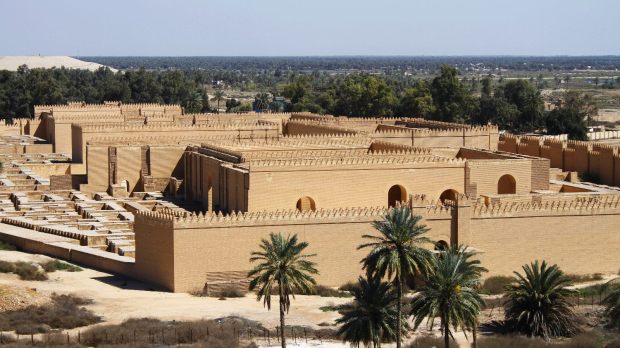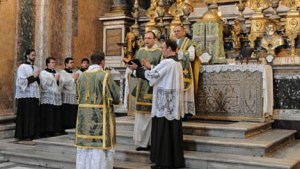Throughout the centuries, the Church has found ways to succinctly describe the life of the Christian, as well as the various cycles in the liturgical year.
In particular, the seasons of Lent and Easter are very easily summarized by two biblical cities: Jerusalem and Babylon.
Dom Prosper Gueranger points this out in his Liturgical Year, first introducing the subject by quoting St. Augustine and how he describes the two seasons.
‘There are two times,’ says the holy Doctor: ‘one which is now and is spent in temptations and tribulations of this life; the other which shall be then, and shall be spent in eternal security and joy. In figure of these, we celebrate two periods: the time before Easter, and the time after Easter. That which is before Easter signifies the sorrow of this present life; that which is after Easter, the blessedness of our future state.’
Gueranger then links this reflection to Jerusalem and Babylon.
The Church, the interpreter of the sacred Scriptures, often speaks to us of two places, which corresponds with these two times of St. Augustine. These two places are Babylon and Jerusalem. Babylon is the image of this world of sin, in the midst whereof the Christian has to spend his years of probation;
Jerusalem is the heavenly country, where he is to repose after all his trials. The people of Israel, whose whole history is but one great type of the human race, was banished from Jerusalem and kept in bondage in Babylon.
The people of Israel were kept in captivity in Babylon for many years, longing to return to their Promised Land. They “ached” for Jerusalem and pined for the days when they could be free to worship God.
In a similar way, we should treat the season of Lent as a time of longing for the Heavenly Jerusalem, waiting for the day when the Lord will call us home.
Furthermore, the Israelites didn’t want to stay in Babylon. They wanted to be set free. We should feel the same, not desiring to stay in the captivity of our sin, but wanting to be united with God in holy freedom.
These two seasons in the liturgical year are beautiful and we should take advantage of them to prepare our hearts for our ultimate destination.


